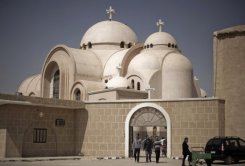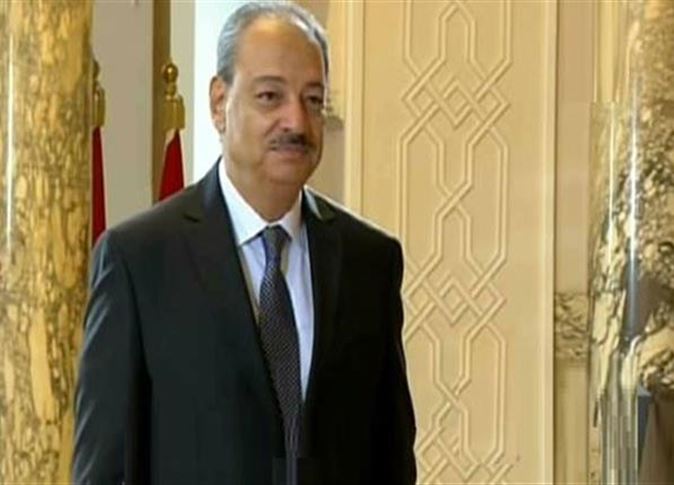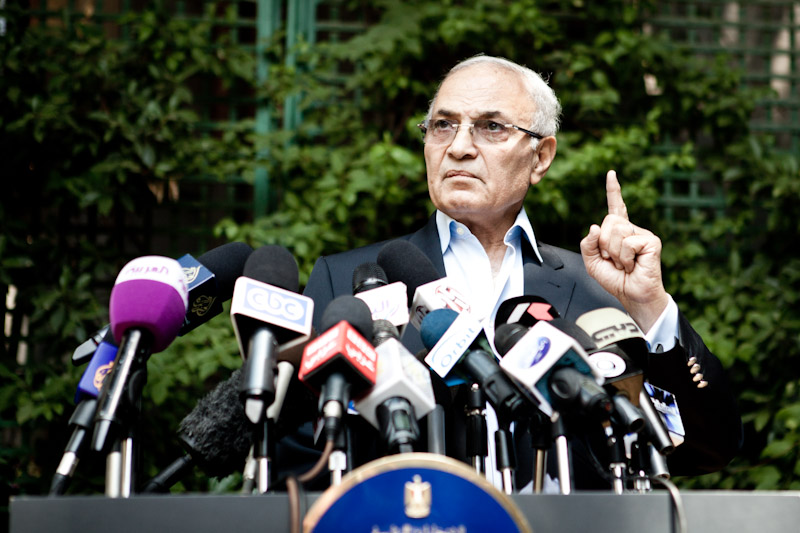
Sunday’s front pages are covered with headlines about President Mohamed Morsy’s separate “talks” with Amr Moussa, Hamdeen Sabbahi and Abdel Moneim Abouel Fotouh. The former presidential candidates discussed the first draft of the constitution with Morsy. Presidential adviser Essam al-Erian said these are only the first in a series of talks the presidency will hold this month with political and civil society forces that have a strong resonance in Egyptian society, for the sake of “intensifying the transition to real democratic life,” privately owned daily Al-Shorouk reports.
In these talks, the daily writes, Amr Moussa expressed his view that time is not the only factor to be considered in writing the constitution. Rather, Moussa thinks quality is also an important ingredient, and so is the people’s consent to their future constitution.
Sabbahi was still in the president’s office when the daily went to print, but the spokesperson of his Popular Current coalition told Al-Shorouk that Sabbahi will focus on “the constitution crisis, social justice and retribution for the revolution’s martyrs.” Sabbahi would also request that the referendum pertaining to the constitution is only held after the Supreme Constitutional Court passes a verdict on the constitutionality of the current Constituent Assembly, one that might lead to its dissolution.
Meanwhile, state flagship Al-Ahram cites sources in the presidency reassuring the public that Morsy does not seek to pressure the Constituent Assembly or meddle in its affairs but is only initiating dialogue, open to all political forces, with the aim of reaching a national consensus pertaining to the constitution. Official sources, the paper reports, said the president discussed the political and economic status quo, in addition to political forces’ efforts to draw up a constitution that “fits Egypt.”
Nearly all papers run headlines about these talks, hardly giving away more than the above, which begs a question that Al-Shorouk managing editor Wael Qandil seeks to answer: “The president and his rivals, serious talk or chitchat?” the title of his opinion piece fittingly reads.
Qandil recognizes at the outset the importance of these talks, but requests they “not be merely photographic occasions and gatherings that produce speech to be added to the immense amount of speech stockpiled in the storehouse of national sophistry.”
He goes on to cite an e-mail he received from one “Youssef,” who suggests Morsy give each of his conversation partners a sheet of paper on which they answer concrete questions like which five articles they would change in the draft constitution and why, or what five projects the presidency needs to urgently implement. Unless talks are of this pertinent nature, Youssef says — and Qandil concurs — “chitchat […] about social justice, fighting corruption and making Egypt a great regional and international power is deception of the citizen without taking responsibility.”
In other news dominating headlines, today the election of the new Coptic pope will take place. A blindfolded child, between five and eight years old, will select one of three remaining candidates to succeed Pope Shenouda III, who died last March.
State-run daily Al-Gomhuriyya leads with the headline “The world is waiting for the Pope of Egypt today” and speaks of a “magnificent historic event,” characterizing the method of selection as a “divine choice.” This was preceded by another election, that of 12 among hundreds of thousands of children who stepped forward to be honored with this “blessing,” the paper reports. One will be selected to choose from a transparent box one of three papers with the names of the candidates written on them.
Al-Watan makes a different editorial decision, and chooses to cover the story in a fashion that does not make one think the church and the state always had an ever so cordial relationship. The privately owned daily, besides in-depth coverage of the event, features a lengthy interview with Bishop Pola, who is also member of the Constituent Assembly, in which he asserts the political role of the Coptic Church.
The bishop further states that he will stand up in the assembly against “sectarian articles” and refuses to be complicit in a constitution that entails a religious state. Unless the constitution guarantees a civil state, Pola is quoted as saying, he will feel compelled to resign from the constitution-drafting body.
Egypt’s papers:
Al-Ahram: Daily, state-run, largest distribution in Egypt
Al-Akhbar: Daily, state-run, second to Al-Ahram in institutional size
Al-Gomhurriya: Daily, state-run
Rose al-Youssef: Daily, state-run
Al-Dostour: Daily, privately owned
Al-Shorouk: Daily, privately owned
Al-Watan: Daily, privately owned
Al-Wafd: Daily, published by the liberal Wafd Party
Youm7: Daily, privately owned
Al-Tahrir: Daily, privately owned
Al-Sabah: Daily, privately owned
Freedom and Justice: Daily, published by the Muslim Brotherhood's Freedom and Justice Party
Sawt al-Umma: Weekly, privately owned
Al-Arabi: Weekly, published by the Nasserist Party
Al-Nour: Official paper of the Salafi Nour Party



